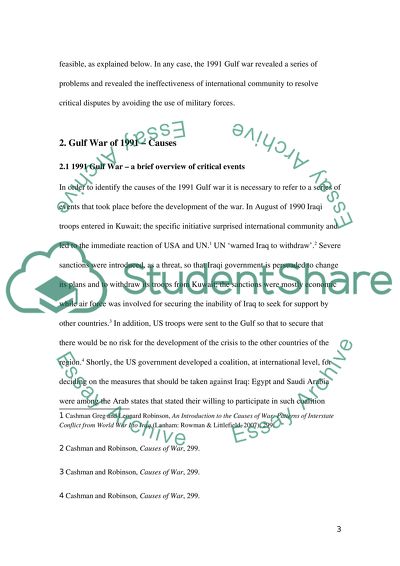Cite this document
(“The Strategic Causes of Conflict - What caused the 1991 Gulf War Essay - 1”, n.d.)
The Strategic Causes of Conflict - What caused the 1991 Gulf War Essay - 1. Retrieved from https://studentshare.org/military/1494442-the-strategic-causes-of-conflict-what-caused-the
The Strategic Causes of Conflict - What caused the 1991 Gulf War Essay - 1. Retrieved from https://studentshare.org/military/1494442-the-strategic-causes-of-conflict-what-caused-the
(The Strategic Causes of Conflict - What Caused the 1991 Gulf War Essay - 1)
The Strategic Causes of Conflict - What Caused the 1991 Gulf War Essay - 1. https://studentshare.org/military/1494442-the-strategic-causes-of-conflict-what-caused-the.
The Strategic Causes of Conflict - What Caused the 1991 Gulf War Essay - 1. https://studentshare.org/military/1494442-the-strategic-causes-of-conflict-what-caused-the.
“The Strategic Causes of Conflict - What Caused the 1991 Gulf War Essay - 1”, n.d. https://studentshare.org/military/1494442-the-strategic-causes-of-conflict-what-caused-the.


